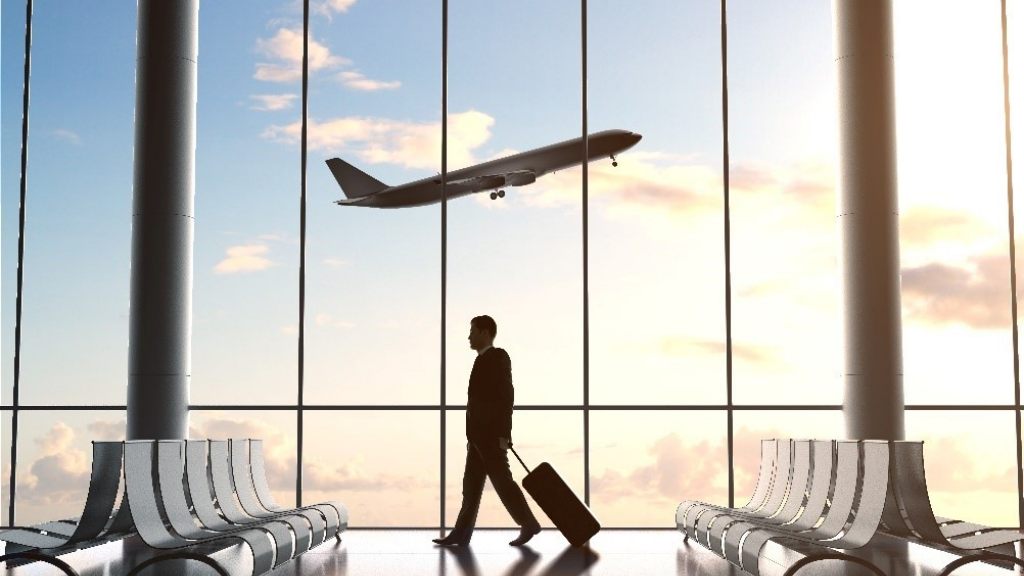
The Bussines travels They face 2023 with several challenges on the table. With the end of 2022, it has been verified that some companies have relaunched corporate travel despite the economic instability and the effects of the pandemic.
These factors have partially affected the recovery of the sector, despite the first rebound observed in 2021 thanks to the introduction of the green pass. The forecast of the restoration of post-pandemic business travel, which was estimated in 2020 to occur in 2025, is now considered could be reached as early as 2024.
He first challenge that the business travel is inflation and, consequently, the increase in prices. In addition to the consequences of the Russo-Ukrainian war, the economic situation also has to do with the strengthening of the dollar, which is the reference currency for the aeronautical industry.
Both long-term leases, as well as the purchase of new aircraft and refueling are paid in dollars. As a result of the combination of these factors, the most far-sighted companies are following a stockpiling policy, both fuel and new aircraft, to avoid future fluctuations in costs, which ends up translating into an increase in prices for the consumer. .
In summary, costs have risen across the board Or they will in the short term. It will not be so common to see the low prices and offers that appeared at certain times of the year. With this universal price rise, in 2023 it is necessary, more than ever, to organize to curb unnecessary expenses and accelerate the digitization of companies.
Sustainability: the challenge of the carbon footprint
The awareness of companies about the carbon footprint and the sustainability of their activity has already been a clear reality in recent years, which will continue its journey in 2023. Corporate trips are now being worked on from another perspective, trying to prioritize those that are necessary and choosing greener options (non-stop flights, with airlines that use sustainable fuels whenever possible, trains where planes can be avoided, etc.) but above all using carbon offsetting services.
The European Union, with the introduction of the package «fit for 55“, has set itself the goal of gradually reducing greenhouse gas emissions by up to 55% in 2030 and 63% in 2050.
Airlines are already investing in SAF (Sustainable Aviation Fuel). For example, KLM has started adding 0.5% SAF to the Schiphol Airport fuel system on every flight out of Amsterdam. However, there are still difficulties in reconciling sustainability with business costs: sustainable solutions are still hard to find on a large scale and are therefore more expensive, and companies sometimes lack budget and team awareness managers to implement real change.
According to a GBTA article, only 36% of companies has a job dedicated to environmental responsibility and only 10% have an entire team with this function. The problem is accentuated by the lack of digitization of processes within companies: 54% of the companies surveyed do not have any travel organization tool, although 86% would consider the possibility of having one.
Digitization and data analysis
Digitization is clearly at the center of the issue, but the most important thing is not only to carry it out, but to properly select the tools with which it is applied to guarantee that the process is a success and has a direct impact for the benefit of companies and the public. planet.
As a study by HRS and GBTA, involving travel and purchasing managers from companies in Europe and the Americas, highlights, the booking tools used by companies are often ineffective: 67% of employees surveyed say it would be easier to use a single channel for all bookingswhile 74% say it would be even easier to book hotels and coworking spaces with a single platform.
In addition, many companies do not take advantage of the opportunities offered by digitalization to read the data, identify the problems and act accordingly. Thus, in 2023 it will be crucial to adopt digital solutions to combine the need to travel for work with the reduction of costs, avoiding cuts that harm the proper functioning of companies. Digitization is therefore the key to optimizing all processes related to business travel.
BizAway and the recovery of the tourism sector business travel
BizAway is a platform that was founded on the idea of digitizing business travel, so when looking at the data for the last two years, the company offers a slightly different point of view than the rest of the market. As a consequence, the company is not suffering the effects of the price increase caused by inflation, but rather is experiencing a real upturn in its activity. This trend is supported by figures: BizAway customers in 2022 are at 70% of pre-pandemic levels.
Specifically, they stand at 69.31% of spending on business trips in 2022, and at 68.06% of bookings compared to 2019. This is probably due to the fact that the implementation of a natively digital system, In coordination with the services established on the platform in the last two years, they have allowed their users to optimize their spending on business trips to such an extent that they can continue with the resumption of activity without problems.



